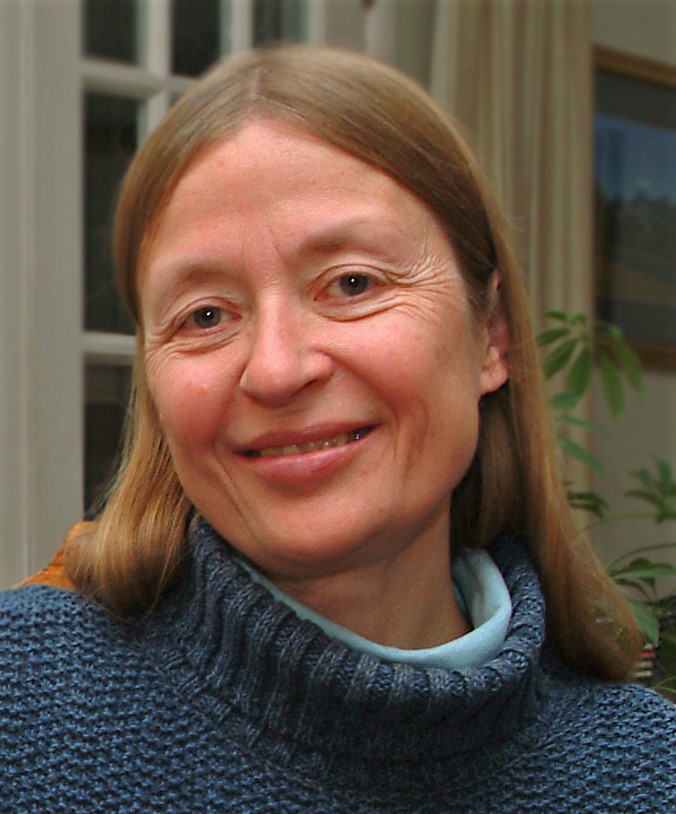Choosing a career because of a childhood haunted house and an exorcist may sound like a unique path, but that is exactly what folklore of the supernatural expert Elizabeth Tucker, a distinguished service professor of English at Binghamton University, did.
Tucker has been at BU since the fall of 1977 and has spent her professional life researching folklore, ghost stories and haunts. She has written multiple books like “Haunted Halls: Ghostlore of American College Campuses,” and she recently co-authored a book with Lynne McNeill called “Legend Tripping: A Contemporary Legend Casebook,” which is a first in a series she is working on as president of the International Society for Contemporary Legend Research.
Tucker found her interest in folklore of the supernatural after she worked with an exorcist. This, along with a ghost her family half-jokingly believed lived in her house, inspired her to pursue research in this field. She believes that folklore of the supernatural not only gives the reader excitement, surprises and scares all at once, but it provides a philosophical answer that most people are looking for.
“[Folklore of the supernatural] has relevance to everybody that has wondered about the line between life and death,” Tucker said. “What happens after death is interpreted in different ways by different people, but it is still a mystery in some ways, so these stories give us an interpretation of what happened.”
Masato Hirakata, a senior majoring in English who is a part of Tucker’s honors seminar, explained how Tucker’s research translates to the classroom. The students have texts that they work on every class, including texts written by Tucker herself. Then, Tucker provides more information about the topics in the texts to help lead a discussion.
“She always takes the time to try and colloquialize or frame and contextualize the readings in terms we can understand, and [she] always brings in more contemporary examples,” Hirakata said. “[Tucker] obviously really cares about what we say, so it is never just saying things to get participation out of the way. It’s very much a discussion among equals.”
Hirakata shared a story about Tucker’s teaching that really stuck with him — she brought in a normal-looking doll to class, but once she told everyone that it was haunted, everyone just believed it to be true.
“This is the discourse that goes on in the class: how do we assign power to places or objects or things,” Hirakata said. “To someone else it might be a doll, but because Professor Tucker told us it was haunted, it became a haunted doll … Words have power, so I can say, ‘Sure that doll is probably haunted.’ It is that sharing of ideas and sharing of worldviews that make this class really interesting.”
In addition, Tucker shared some stories about tales she has heard while doing her research and working at BU. She told one story about one of her students’ experience with a ghost. The student was in an attic working on a project for Tucker’s class when she saw an old man’s head floating. When she came back down, she talked to the landlord about the project, and the landlord said he would show her pictures of the old house builder for her research. The person who built the house had the same face as the ghost.
Tucker also detailed some of the ghosts people believe are residing on the BU campus. Hinman College is believed to have ghosts, including one named Charlene who bakes deadly but delicious-smelling brownies and loves to do laundry. Dickinson Community has a ghost named Gus who is said to have committed suicide. However, Tucker confirmed that no student named Gus committed suicide at BU, so that ghost is just a story. There is also believed to be an eight-foot shadow of a man in the Nature Preserve.
While it is easy to get caught up in the fun of believing haunts, it is important to note that many people do not believe in the supernatural at all. Hirakata explained that Tucker creates a class environment that looks at this topic of folklore of the supernatural from all perspectives and thoughts, including thoughts that doubt the validity of ghost stories themselves.
“There are obviously going to be skeptics out there about ghost stories … and that is okay, and Professor Tucker says that explicitly,” Hirakata said. “But at the end of it, it all comes back to an honors seminar because we are using folklore … to understand other perspectives and ideas.”



